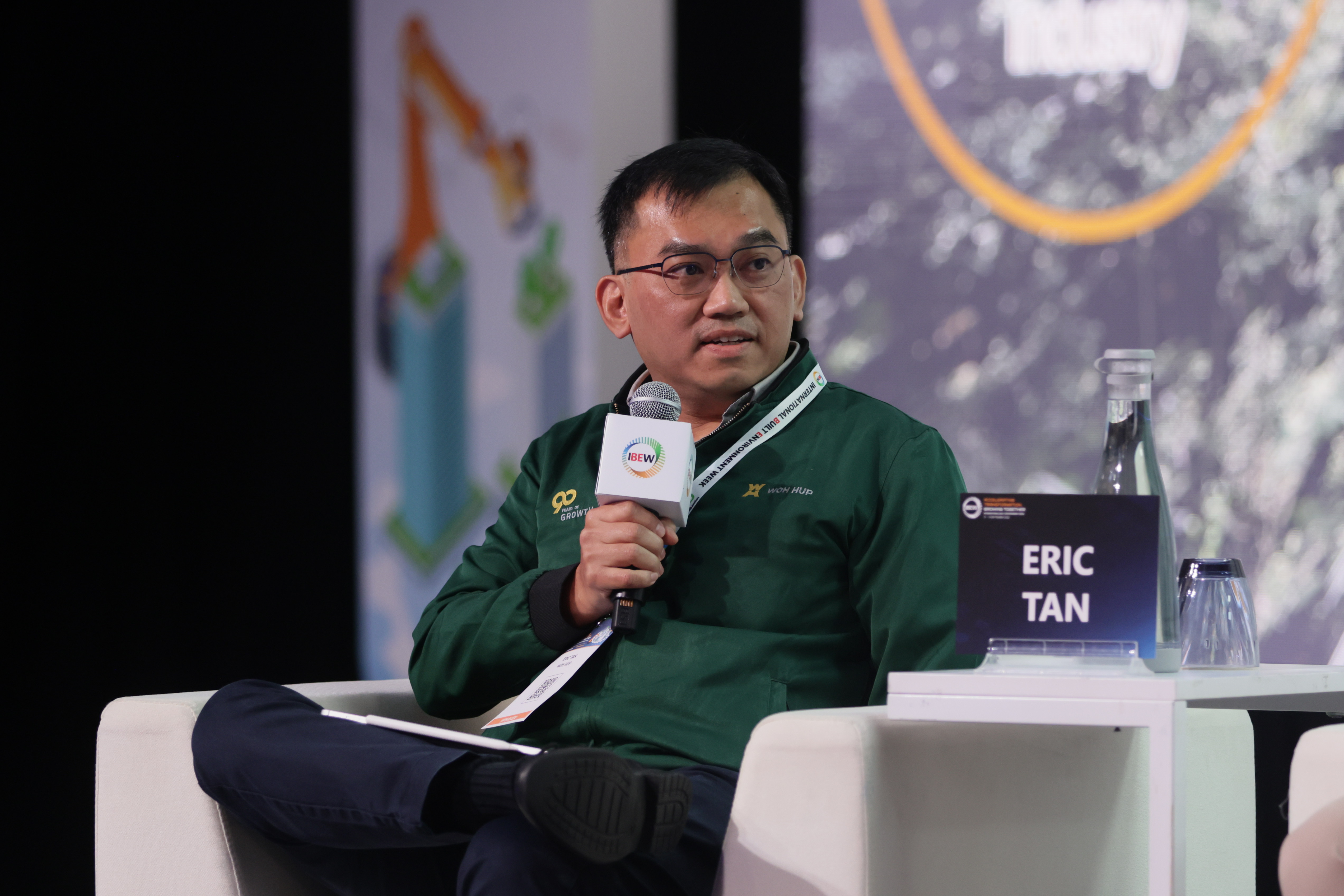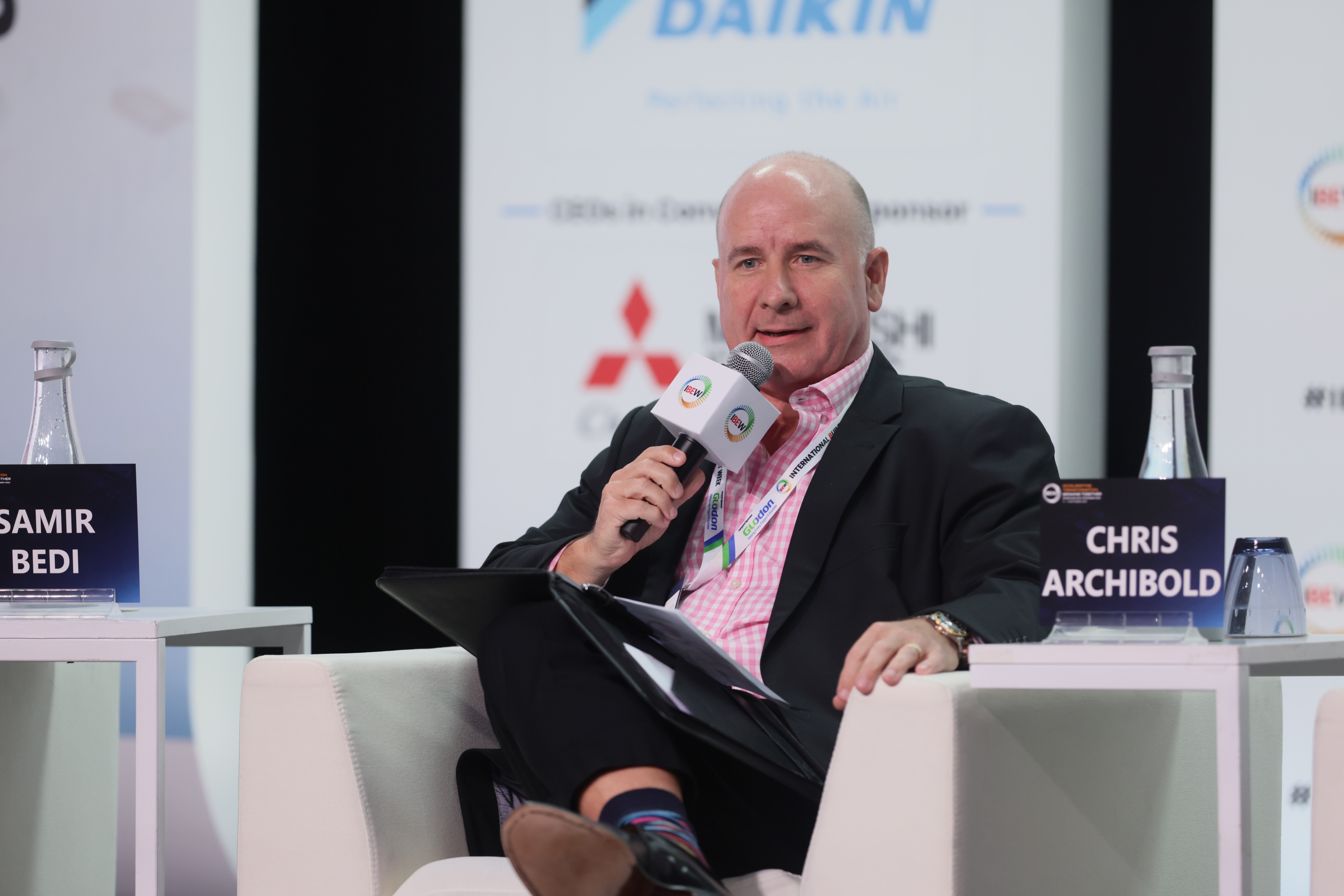Almost seven in 10 (68%) bosses say staff turnover has increased while close to nine in 10 (86%) employees believe that hybrid work makes them happier, due to an accelerated change of perspectives over the past two years of disruptions wrought by COVID-19 and digitalisation.
This data emerged in a study by Ernst & Young Advisory (EY), which covered 26 sectors in 22 countries including Singapore’s Built Environment (BE) sector that is no stranger to manpower challenges. Presenting the study, Mr Samir Bedi, Partner and ASEAN Workforce Advisory Leader at EY, shared about the impact of emerging global and technological trends on the BE sector.
“Existing job roles are expected to be impacted to varying degrees by five megatrends and technology trends,” he said on the third day of the International Built Environment Week 2022 during a panel discussion that covered talent development and future work trends.
The megatrends include the pandemic, value chain aggregation and integration, workforce challenges, sustainable construction, and multi-skilling. The rise in digital solutions have also created new jobs, ranging from architectural technologists to robotic engineers.
Such shifts require companies to adapt quickly, noted Mr Bedi, from technology adoption to skill building and reviewing work practices to retain as well as recruit more into the sector.
“The challenge is very, very real,” added Mr Louis Khoo, Director at building firm Kimly Construction. “Companies are not just fighting a war on one front but on multiple fronts – fresh talent, job redesign, digitisation and work culture practices.”
BRINGING EMPLOYEES ALONG THE DIGITAL JOURNEY
In the midst of these changes, leaders play a key role. They must take charge and collaborate with employees to not only transform the workplace through digitalisation but also offer fulfilling job roles.
But success does not depend on leaders alone. While they drive company culture, employees must also play their part to ensure a smooth transition.
“It takes two hands to clap,” said Mr Yeo Siew Haip, Chief Executive Officer at SJ Global Architecture (Southeast Asia & North Asia) and SAA Architects. “Both parties must really figure out what culture they want to create.”
“Employees want a say in this as well,” added moderator Chelvin Loh, Director at SkillsFuture Singapore (SSG).
|
|
 Mr Eric Tan, Group Director at construction firm Woh Hup Mr Eric Tan, Group Director at construction firm Woh Hup
|
|
Mr Eric Tan, Group Director at construction firm Woh Hup, noted that workers generally want to contribute meaningfully and be rewarded accordingly. “If there's no conversation about how an employee can add value to their career by doing something different, it is likely they will leave you,” he said.
To create more value for employees through skill building, the firm has launched a training curriculum in the form of a digital app. For example, construction workers can undergo safety induction courses via their phones and take a test at the end of each course.
“During COVID times, because of social distancing, we wanted to do things differently in terms of training,” explained Mr Tan.
The company also provides in-house training on the BIM technology. The curriculum on the virtual modelling technique is done in partnership with SSG and Singapore Polytechnic.
Through the course, draftsmen – who traditionally sketch building plans by hand or produce 2D and 3D visuals using computer aided design and drafting (CADD) systems – are upskilled to become BIM modellers capable of generating superior digital representations of the structures. More advanced BIM modellers are groomed to become master trainers to guide new hires. The company currently boasts 18 BIM master trainers.
GREEN SKILLS AND CARE SKILLS
Beyond the workplace, climate issues have also been thrust into the spotlight. This means that companies are also expected to pivot to sustainable construction to establish a more environmentally-friendly BE sector.
|
|
 Mr Chris Archibold, Country Head of JLL Singapore Mr Chris Archibold, Country Head of JLL Singapore
|
|
From sustainable project management to renewable energy solutions, global real estate services JLL is leading this green march.
For instance, the company is facilitating conversations around the industry’s green agenda with its clients through its 3,000-strong global Energy and Sustainability Services (ESS) team.
“Unfortunately, our industry is a contributor to carbon emissions. So, it’s very high on JLL’s Global Executive Board agenda to address this massive issue,” said Mr Chris Archibold, Country Head of JLL Singapore.
Its JLL Foundation platform has also invested over US$1 million in eight non-profit organisations working on climate change impact.
Lastly, adopting care skills should be part and parcel of employers’ efforts to increase employee retention.
Indeed, Mr Archibold observed that 99 per cent of employees quit not because of the pay, but because they don’t like their jobs.
To increase employee retention, Woh Hup’s Mr Tan also noted that managers should pivot the conversation towards helping them find purpose and value in their jobs.
Wrapping up the discussion, moderator Mr Loh said it is vital for BE organisations to prepare for the future of work that will keep up with the technological demands while also providing a positive environment for its people.